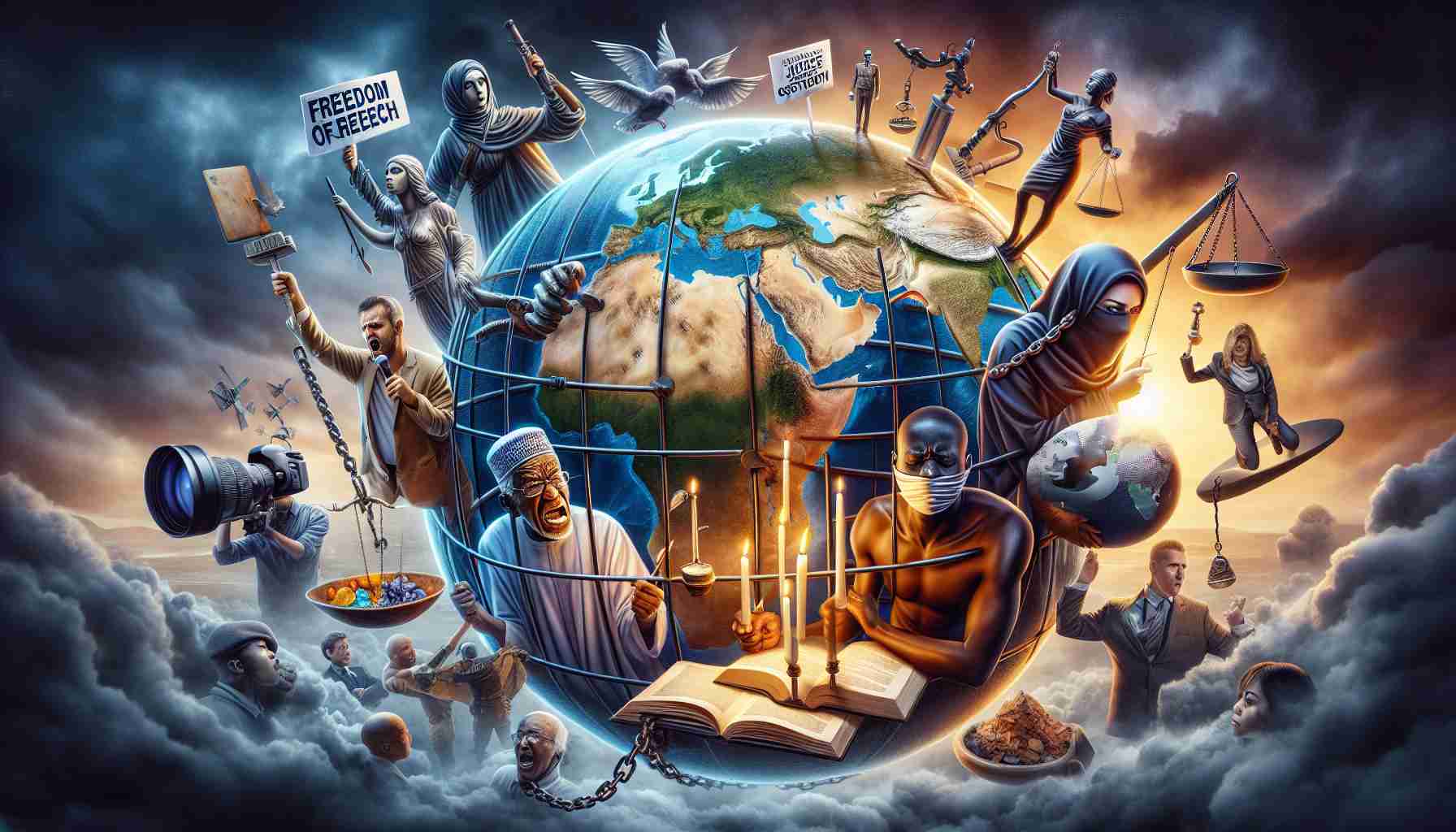The worldwide state of human rights has entered a precarious phase, with particular concerns around the abuse inflicted upon civilian populations across various nations. Public institutions and armed groups are treating these civilians as expendable, ushering in an era where censorship, illegitimate force, and torture have become disturbingly commonplace.
Amnesty International has released a comprehensive review highlighting the plight of human rights in 2023, focusing attention on the complexities of over 30 ongoing conflicts and the alarming risks posed by artificial intelligence. According to the organization’s secretary general, the global landscape is marred by repressive actions against human rights amidst increasing inequality, major powers vying for supremacy, and a worsening climate crisis.
The report underscores a pivotal moment for global human rights, revealing a backslide to democratic populations last seen in 1985—a time before significant geopolitical shifts such as the fall of the Berlin Wall and Nelson Mandela’s release from prison. Amnesty International’s leaders in Spain have voiced grave concerns, warning that the erosion of established norms by governments and corporate entities points to a potential future devoid of human rights protections.
Armed conflicts exacerbate discrimination and impunity, especially noticeable in the Gaza Strip, where international condemnation is scant and unchecked technological advances heighten abuses. The disproportionate influence of powerful nations—such as China, Russia, and the United States—is criticized, notably their capacity for control and obstruction within the UN framework, posing a significant threat to international law.
Additionally, the report shines a light on the consumption of artificial intelligence and facial recognition in perpetuating institutional racism and discrimination. Amnesty International calls for comprehensive commitment from international to local institutions to address and rectify the digital reproduction of societal biases. The organization also raises concerns about digital governance in migration and border control, where reliance on new tech has led migrants to undertake even more hazardous journeys.
In the European context, the report points to technological automation in welfare states, which has systematically excluded vulnerable groups from public aid due to algorithmic patterns lacking proper evaluation—highlighting the need for reparatory protocols. Serbia and the Netherlands are cited as examples where algorithmic systems have adversely impacted Roma communities and migrant families, respectively.
Amnesty International’s report delivers a sobering account of human rights challenges in a world increasingly at odds with the ideals of freedom and equality, underscored by the critical role of technology as both a tool and a potential threat.
Important Questions and Answers:
1. What is causing the current global human rights challenges?
There are several causes of the current human rights challenges. Increased authoritarianism, repression by government and non-state actors, power struggles among major nations, a worsening climate crisis, and the misuse of technology, notably artificial intelligence, are among the key contributing factors. These issues are leading to widespread abuses such as censorship, illegitimate force, and torture.
2. How do armed conflicts contribute to human rights abuses?
Armed conflicts often lead to discrimination, impunity, and violence against civilians. In such chaotic environments, civilian populations become vulnerable to abuses, and international law is frequently ignored or inadequately enforced. The complex humanitarian crises that ensue are exacerbated by global politics and the interests of powerful nations, often leaving victims without recourse.
3. What role does technology play in human rights violations?
Technology, particularly artificial intelligence and facial recognition, can perpetuate and exacerbate discrimination and institutional racism when not properly regulated. AI systems without transparent and fair algorithms can also lead to the exclusion of vulnerable populations from public aid. Moreover, technology in migration and border control is complicating safe routes for migrants, pushing them towards more dangerous paths.
Key Challenges and Controversies:
There are several significant challenges and controversies associated with the topic of global human rights under siege, which include:
– Addressing the disproportionality of power within international institutions like the UN, where powerful countries have excessive control.
– Ensuring that technological advancements, especially in artificial intelligence and surveillance, do not infringe on human rights but instead promote inclusivity and respect for privacy.
– Creating effective mechanisms to hold those accountable for human rights violations, including state and non-state actors.
– Balancing the necessity of national security with the protection of civil liberties, especially in context to counter-terrorism and border control policies.
Advantages and Disadvantages:
Advantages of addressing human rights issues:
– Promotes a fairer and more equitable global society.
– Helps prevent conflicts and can contribute to international peace and stability.
– Upholds the dignity and worth of individuals and groups, aligning with ethical and moral principles.
– Can lead to positive socio-economic outcomes, including enhanced development and cooperation.
Disadvantages of current global human rights abuses:
– Creates a culture of impunity and injustice, affecting millions worldwide.
– Destabilizes regions and contributes to global insecurity and displacement.
– Undermines democracy and the rule of law, eroding trust in public institutions.
– Marginalizes vulnerable groups, deepening inequality and societal divides.
Related Links:
For more information on human rights topics and organizations working on these issues, you can visit:
– Amnesty International
– Human Rights Watch
– United Nations Human Rights
It is crucial to ensure the URLs provided are correct and leading to the main domains of reputable organizations known for their work in human rights protection and advocacy.
The source of the article is from the blog lanoticiadigital.com.ar

